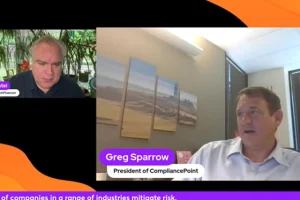Outbound Dialing Data Audits: You Don’t Know What You Don’t Know
Businesses often believe they have a grasp on their outbound marketing efforts and operate under the assumption that their dialing systems’ checks will keep them in compliance. The outbound dialing data is where the rubber meets the road and tells you the actual story of what is happening with your outbound dialing efforts. Yet, we see issues such as multiple lead sources, messy lead data, asynchronous dialing platforms, agent overrides, and more that cause businesses to unknowingly fall out of compliance. Without a thorough audit, it’s impossible to be certain your outreach is operating as intended. It’s not uncommon for us to discover lapses in internal processes, and with regular auditing, organizations can detect and rectify these inconsistencies, safeguarding their operations from potential legal implications and protecting their brand reputation.
Timing of the Call
One of the first things we look at during a dialing data audit is the timing of calls. Between federal and state regulations, hour restrictions that differ by day, and holiday restrictions, it can be difficult to stay on top of when you are able to dial a consumer. Many businesses localize time based on the consumer’s telephone area code, which tells them nothing about the person’s actual location. Others manage calling times by state of residence, many of which overlap multiple time zones, and can cause calls to be made outside of the state or even federal restrictions. Businesses fortunate enough to have ZIP Codes for their leads do not always run into the same issue, but even when we see clients that have ZIP Codes, we often still see them using the area code to manage calling times. States with more restrictive calling time windows are often overlooked as well when no exemption exists. Our audits have revealed that a surprising number of companies unknowingly breach these time windows and potentially expose themselves to legal repercussions.
Attempt Counts and Calling Frequency
How often a business attempts to contact a potential customer can significantly impact their success rate and ROI. We can tune our attempt audits to fit a business’ internal attempt rules as well as for state regulations, such as Florida’s max 3-in-24-hours restriction. We’ve found many instances of businesses unintentionally dialing a consumer dozens of times in a day or hundreds of times through a campaign’s lifespan. One commonly overlooked potential issue is duplicate leads. If a potential customer is found through multiple lead sources, their number could be added across multiple active campaigns, while the dialing platform only checks for attempt restrictions per campaign. Over-dialing a consumer will harm your reputation, Caller ID metrics, and success rates, and is impossible to detect without a thorough data audit. Beyond audits of internal and legal attempt restrictions, we can perform analyses on the dispositions of your dials at each attempt, allowing us to pinpoint the optimal number of calls for the highest likelihood of a positive outcome. This kind of analysis can help businesses streamline their calling strategies and allocate resources more efficiently.
Conclusion
Data audits are more than just a compliance check. They offer a deep dive into a company’s dialing strategies, revealing opportunities for improvement and growth. Without an audit of your company’s dials, it’s impossible to be certain your dialing platform is operating as intended. Data audits offer the ability to quickly identify and mitigate lapses and inconsistencies, safeguarding companies from expensive legal repercussions, damage to their brand reputation, and allowing for more effective and efficient dialing strategies.
CompliancePoint has an experienced team that can audit your outbound dials to ensure you stay compliant with all applicable regulations, including the TCPA, TSR, Do Not Call/Wireless lists, and all state telemarketing laws. Contact us at connect@compliancepoint.com to learn more about how we can help.
Finding a credible expert with the appropriate background, expertise, and credentials can be difficult. CompliancePoint is here to help.





